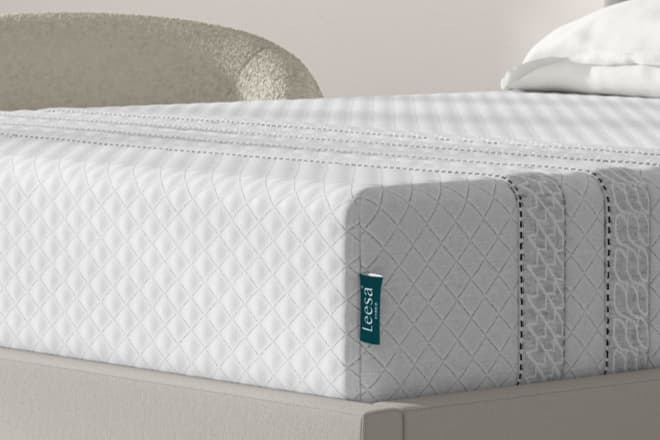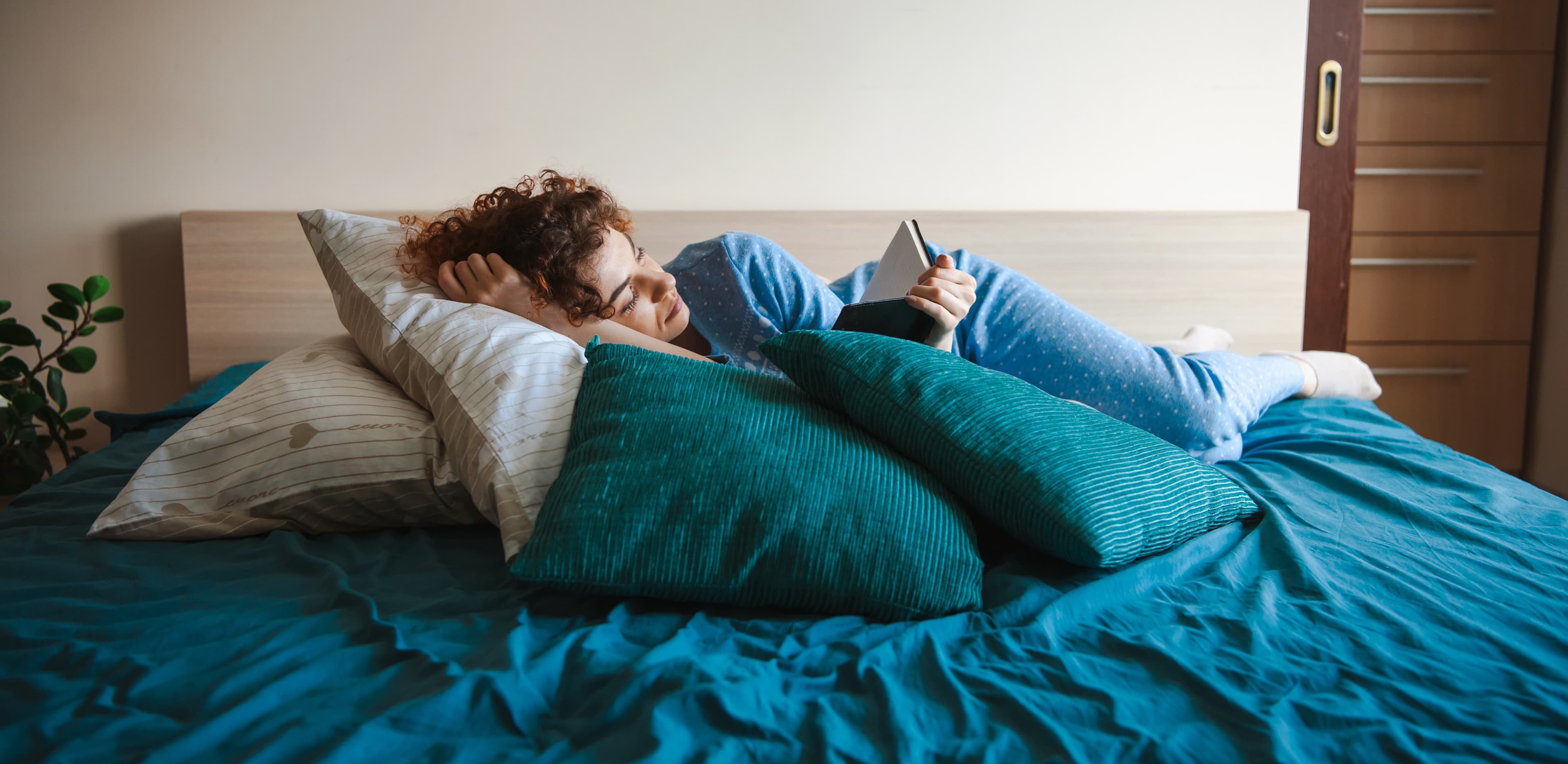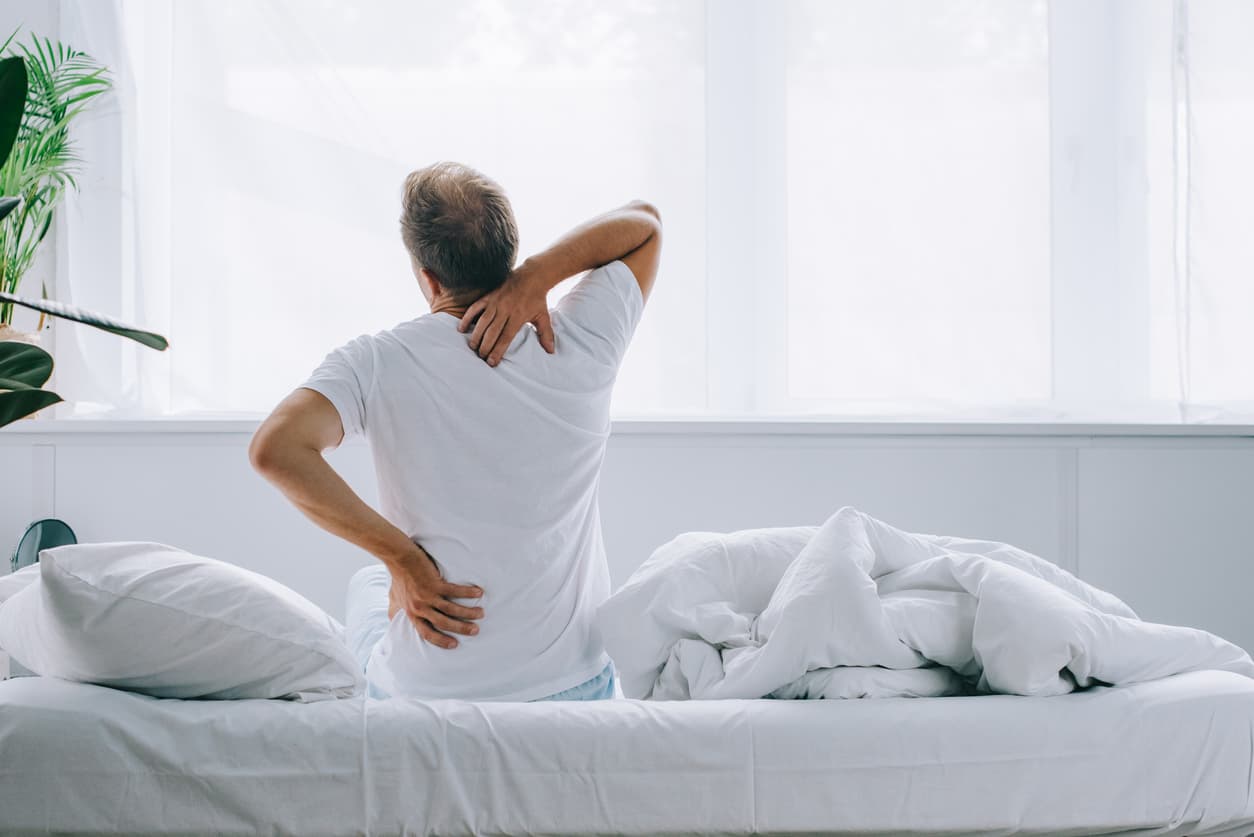Tossing and turning in the middle of the night is the stuff of nightmares—sometimes literally. We've all been there, desperately longing to slip back into dreamland but feeling like we're fighting an uphill battle. It's beyond frustrating and can turn the next day into a groggy, coffee-fueled struggle. But fear not, weary wakers! There are several workable ways to fall back asleep.
We've got your back with 10 tips to help you reclaim those precious zzz's and fall back into blissful slumber. So prepare to bid farewell to those sleepless nights and say hello to uninterrupted restorative sleep. Let's dive in, shall we?
Why Do I Wake Up in the Middle of the Night?
It can be distressing if you wake up in the middle of the night and find it impossible to get back to sleep. There are many potential causes of lack of sleep, and understanding the common ones can help solve your sleeplessness. They include:
- Stress and anxiety
- Interruptions from noise or light
- Blue light exposure
- Consuming alcohol or caffeine close to bedtime
- Hormonal imbalances
- Medical conditions, such as acid reflux or chronic pain
- High body temperature
While everyone experiences wakefulness differently, "hot sleepers" or "night owls" can find it harder to fall asleep and stay asleep. Hot sleepers may have difficulty regulating their body temperature if their bedroom is too warm. This causes them to wake up during the night feeling uncomfortable and unable to fall back asleep. On the other hand, night owls often have trouble falling asleep because their body's internal sleep clock may favor a later bedtime and wake time.
Regardless of the reason, lack of sleep can negatively affect your health and well-being.
How to Fall Back Asleep
Trying to fall back asleep can seem like an uphill battle. But there are things you can do to help you drift off and get the restful sleep your body needs.
1. Avoid Alcohol Before Bed
According to the Jackson Heart Sleep Study , drinking alcohol before bed can lead to disrupted, poor-quality sleep. Alcohol interferes with the body's natural sleep cycles and can cause frequent waking and difficulty falling back to sleep.
Alcohol consumption also causes disturbances in breathing patterns, which can lead to snoring, gasping, or pauses in breathing. All these sleeping disturbances can lead to feeling tired the following morning. Sleep experts advise you to stop drinking alcohol three hours before bedtime.
2. Journal Your Thoughts
Taking the time to write down your thoughts before bedtime can help you stay asleep. Writing out your worries, fears, plans, and dreams can give you control over the many things that may be running through your mind. It allows you to externalize those thoughts so they don’t keep distracting you while trying to sleep. Having a consistent journaling routine before bed can also help you focus on positive experiences rather than negative ones, reducing the stress and worry that would keep you awake.
3. Set Up A Cozy Sleep Environment
The environment you sleep in can dramatically affect your sleep quality, so creating an ideal sleeping environment is important. A cozy bedroom that's comfortably cool, quiet, and dark can help you fall asleep quickly and stay asleep. You might also want to consider installing blackout curtains to block out light and reduce sound.
Investing in a quality mattress and bedding from Leesa can make a big difference in improving your sleep quality. Leesa mattresses are meticulously designed and made with the highest quality materials for exceptional comfort and support. Leesa's premium bedding is specifically designed to provide luxurious comfort and relaxation so you can sleep better

4. Use Deep Breathing Techniques
One way to relax and fall back to sleep is to use the 4-7-8 breathing technique . The technique involves breathing in for four seconds, holding your breath for seven seconds, and exhaling for eight seconds.
This type of deep breathing helps relax the mind, body, and spirit, which can help decrease anxiety and make it easier to fall back asleep. Studies show this technique regulates your parasympathetic nervous system to create a calming effect. This will help you drift back to sleep.
5. Practice Guided Meditations
If you're having trouble falling back to sleep, guided meditations can be a great way to relax and reset your body. Recorded guided meditations include verbal instructions narrated by an expert or instructor.
The key to successful guided meditations is to remain focused. Concentrate on each word, and try the visualization techniques the instructor may suggest. These visualizations can create a sense of peaceful calm and help you slow your breathing. This can relax you and help you get back to sleep.
6. Try Relaxation Exercises
Simple relaxation techniques, such as progressive muscle relaxation (PMR) and guided imagery visualization, can help you relax and fall back asleep. To practice PMR, start by tensing the muscles in your feet for five seconds and then releasing them. Move up your body, tensing and releasing each muscle group in turn until you get to your head and neck area. Then let all the muscles in your body relax.
You could also try guided imagery visualization. Get comfortable in your bed and imagine yourself in a peaceful environment, such as a beach or forest. Visualize the image in detail and focus your attention on it.
After practicing these exercises, you should feel more relaxed and ready to drift back to sleep. Don’t get discouraged if you get distracted at first! Simply return to the exercise and continue until you fall back asleep.
7. Stop Watching The Clock
When awake during the night for a long time, there's a tendency to check the clock. " Clock-watching " makes falling back to sleep more difficult. As time passes, the amount of time left for sleep shrinks, which increases anxiety and further inhibits sleep. To avoid checking, keep your phone out of your bedroom, and put your alarm clock where you can't see it.
8. Get Up and Take Your Mind Off Sleep
Sleep experts suggest that if you can't fall back to sleep within 20 minutes, it's best to get out of bed and do something relaxing. It could be as simple as reading a book or magazine, journaling, meditating, or listening to gentle music. This gives your body a chance to reset and get ready for sleep again.
9. Listen to Calming Music
Calming music has a tranquilizing effect on the brain, allowing deeper relaxation and easier sleep. This is especially true of music with binaural beats—auditory illusions created when two tones at slightly different frequencies are played separately in each ear. This creates a perception of a third tone, which is the oscillation between the two tones. A study has shown that binaural beats vibrate at a delta frequency of 3Hz. This induces delta activity in the brain and helps lengthen deep sleep.
10. Stop Staring at Screens Before Bed
Blue light from phones, tablets, computers, and TVs tricks your brain into thinking it's daytime. It affects the production of melatonin, the hormone that helps you relax and fall asleep. Mental stimulation from screens can also keep your brain alert and make it difficult to sleep and stay asleep.
Experts recommend putting away devices at least an hour before bedtime and replacing the time spent with activities like reading a book, meditating, or journaling. You can also try dimming the lights to get your body ready for sleep.
FAQs
How can I calm my mind before bedtime?
A great way to ensure a good night's sleep is to take some time before bed to relax and get ready for slumber. The best way to do that is to create a calming bedtime routine. Consider activities like reading, stretching, or doing some light yoga to help slow down your mind and body. Avoid alcohol and stimulants like caffeine, since they can have a negative impact on your sleep quality. Additionally, turn off all screens at least an hour before bedtime, so your mind and body have time to wind down from the day.
Will taking naps during the day improve my nighttime sleep?
Taking naps can be a good way to give your body and mind a break, especially if you've had a long day. That said, it's important to set time limits for naps since oversleeping can have negative effects on your sleep quality. Keep naps short and avoid taking them too late in the day. Taking a short nap during the afternoon can be beneficial, but remember that longer naps may make it more difficult to fall asleep at night.
What are some remedies for chronic insomnia?
If you have chronic insomnia, there are many potential remedies to help improve your sleep. They include:
- Good sleep hygiene
- Cognitive behavioral therapy (CBT)
- Regular exercise
- Relaxation techniques like deep breathing, meditation, and yoga
- Light therapy to reset your body's clock
- Avoiding substances like alcohol and caffeine close to bedtime
- Speaking with your doctor or another medical professional
Which sleeping positions help promote a good night's sleep?
Sleeping positions can impact your sleep quality and either help or hinder restful, uninterrupted sleep. Find a comfortable position that allows you to stay asleep longer. The choice of sleeping positions varies based on comfort, health needs, and personal preferences. The two most restful sleeping positions are the "back sleeper" and the "side sleeper." Both positions help keep the spine aligned and keep your head from becoming too elevated.



